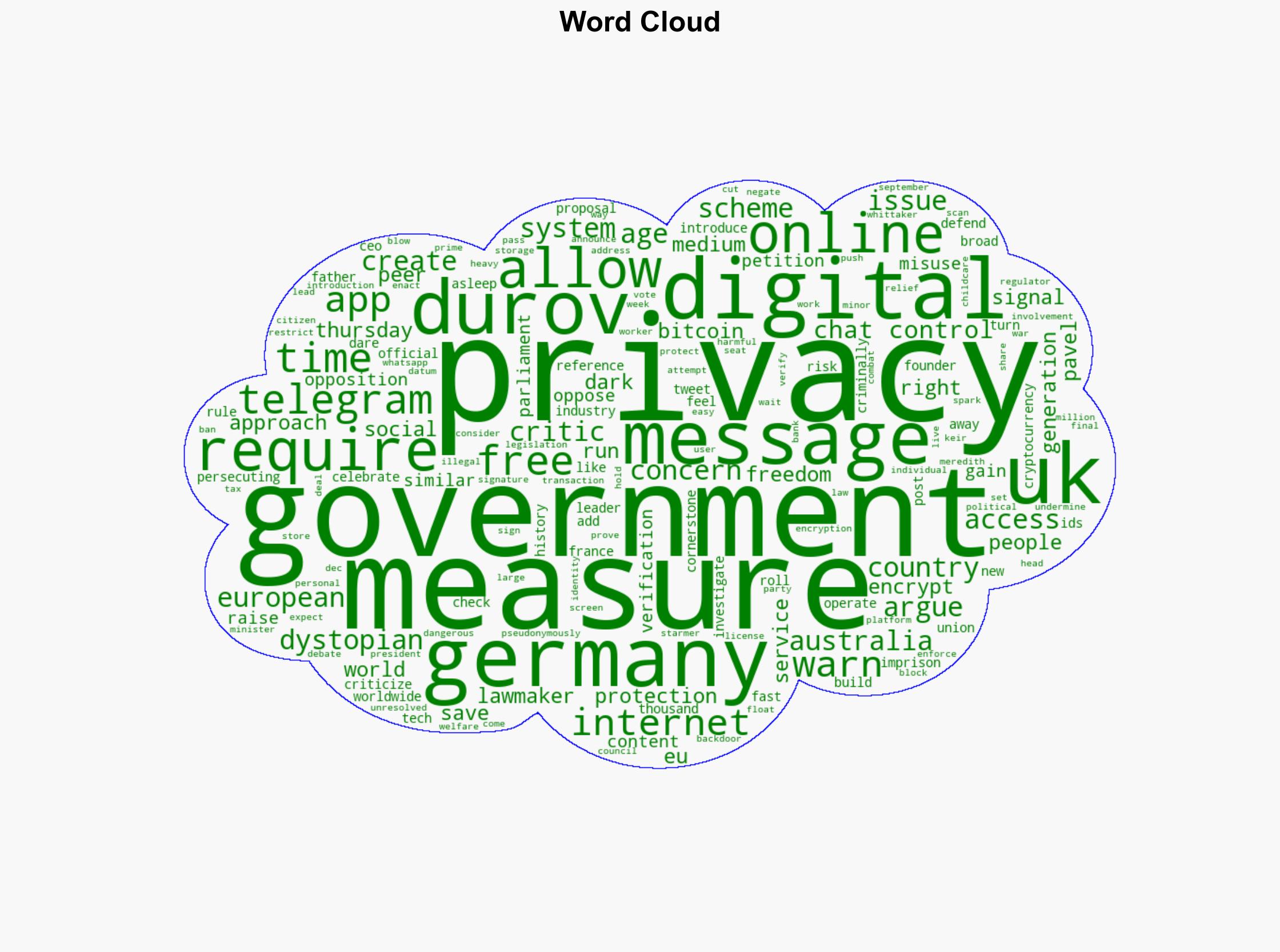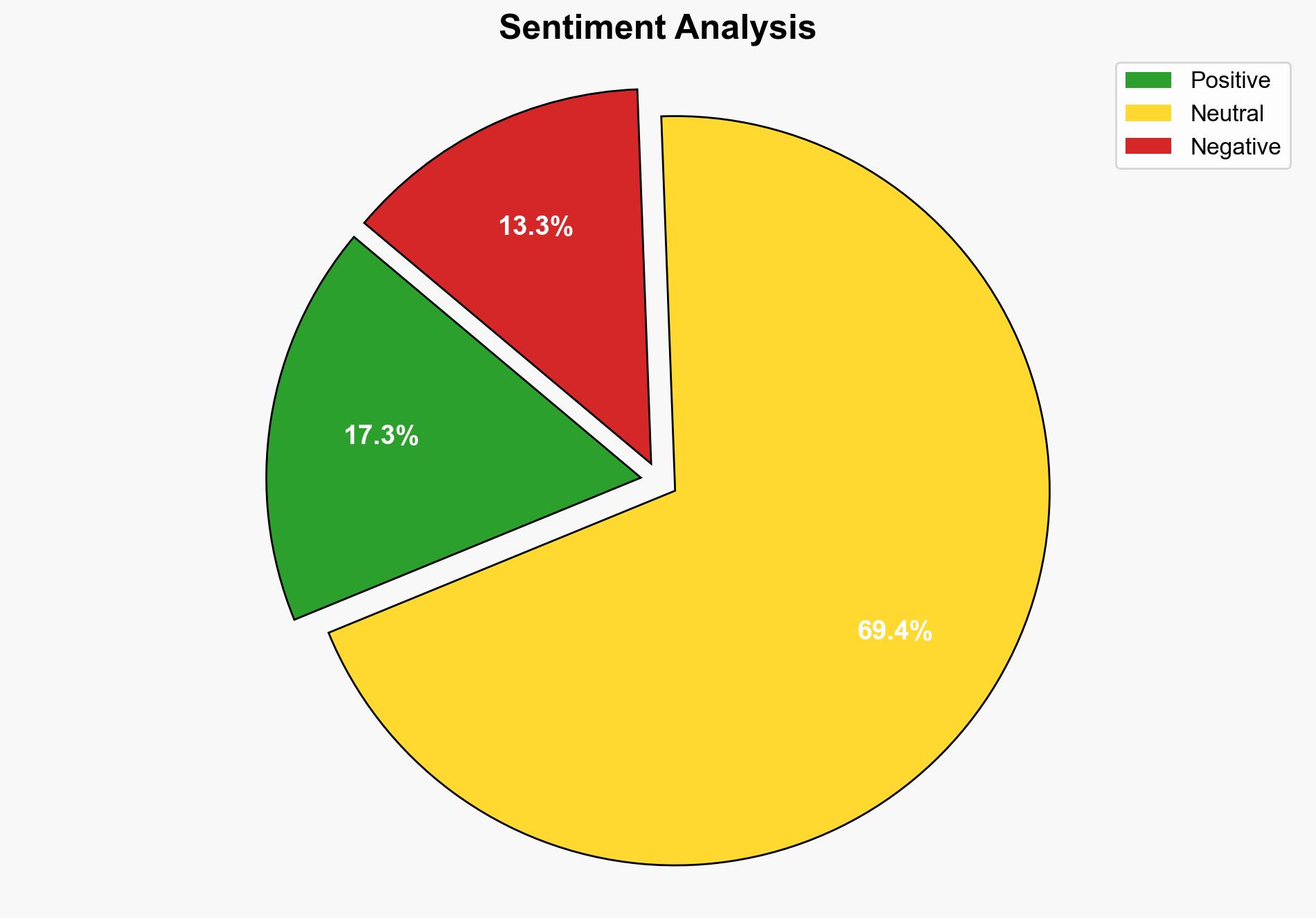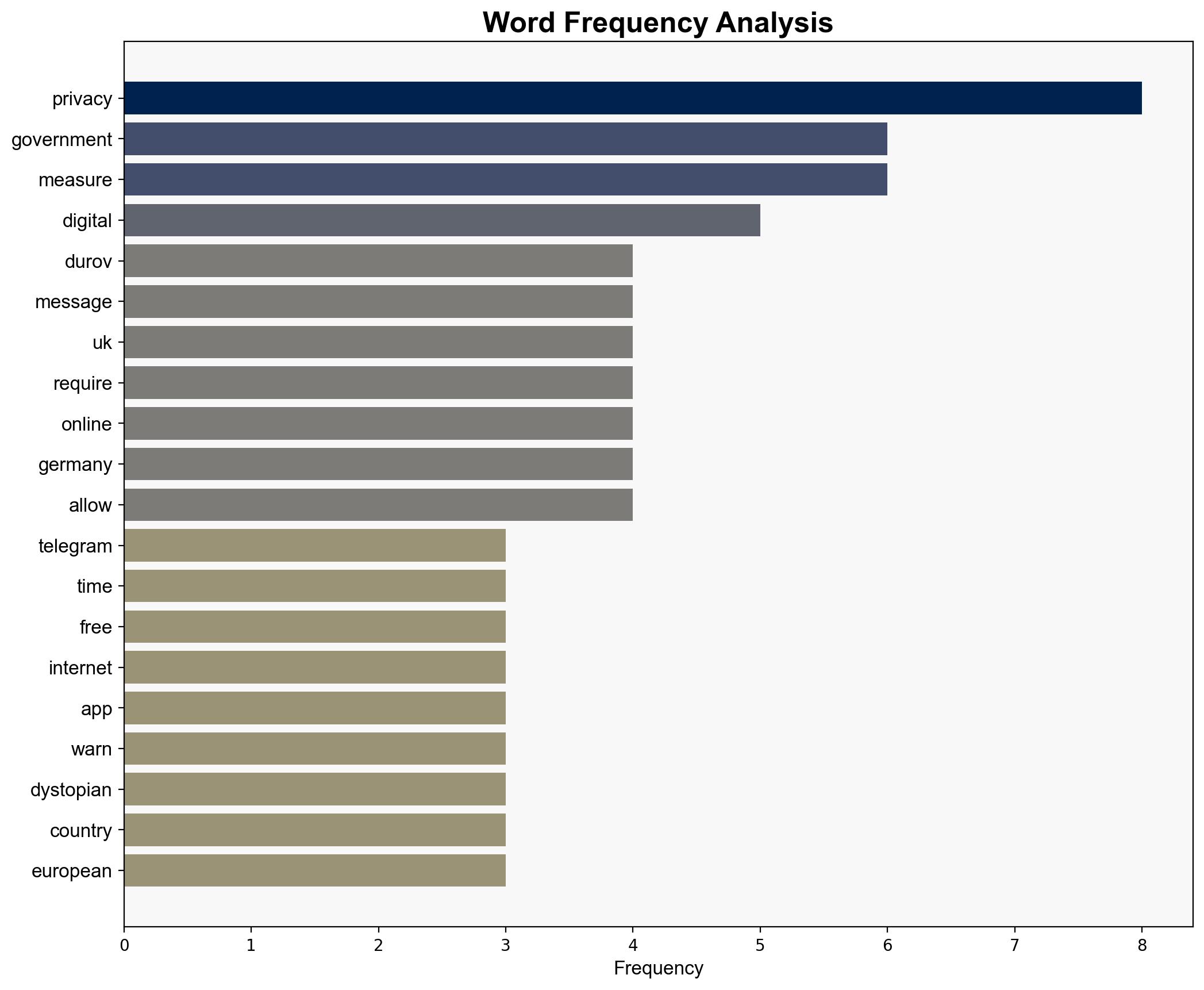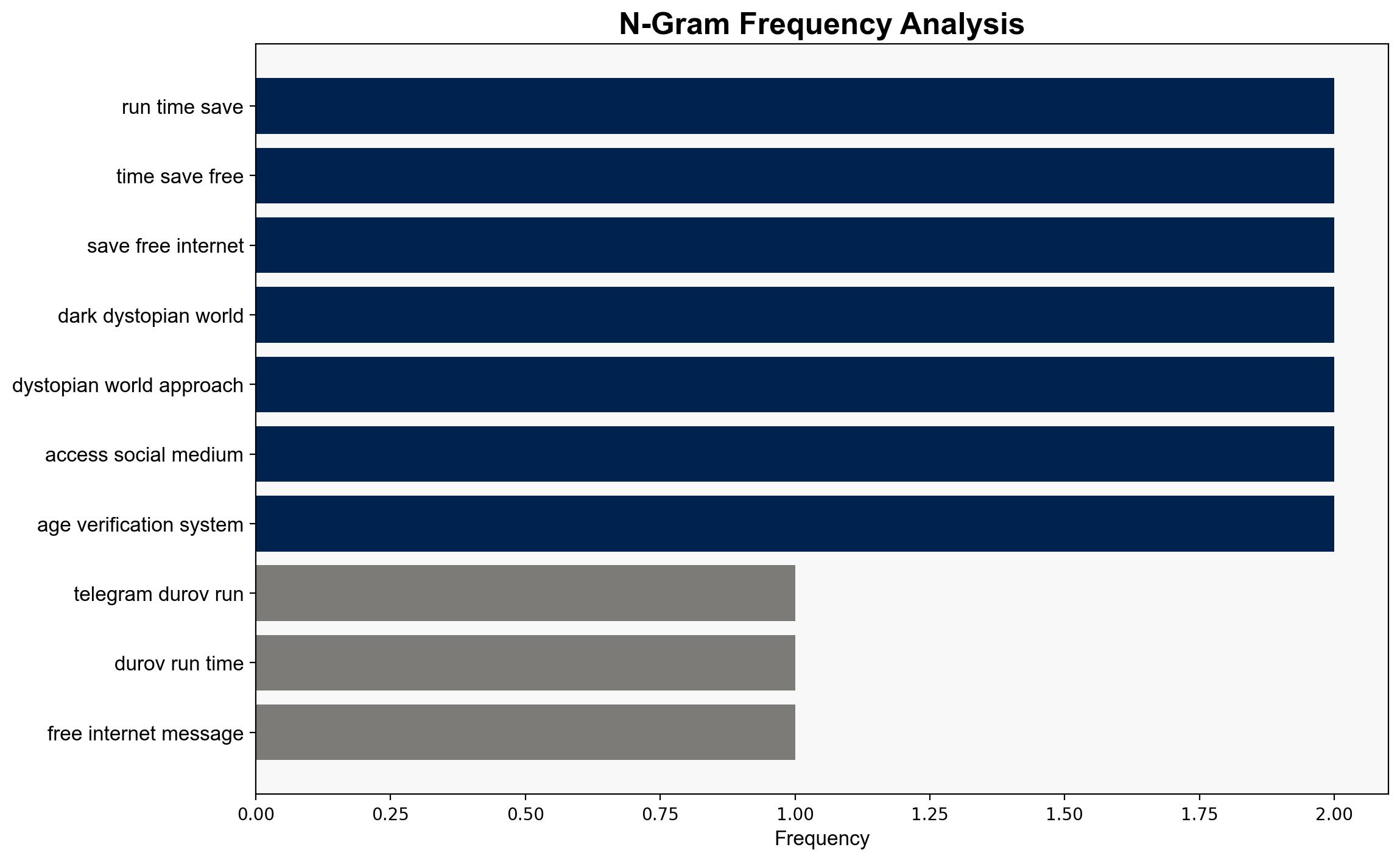DUROV We’re running out of time to save the free internet – Tradingview.com
Published on: 2025-10-10
Intelligence Report: DUROV We’re running out of time to save the free internet – Tradingview.com
1. BLUF (Bottom Line Up Front)
The most supported hypothesis suggests that increasing government regulations on digital privacy and encryption are primarily driven by national security concerns, but they pose significant risks to individual privacy and internet freedom. Confidence level: Moderate. Recommended action: Advocate for balanced policies that protect both national security and individual privacy rights.
2. Competing Hypotheses
1. **Hypothesis A**: Governments are implementing stringent digital regulations primarily to enhance national security and protect citizens from cyber threats and misinformation.
– **Supporting Evidence**: References to measures in the UK, EU, and Australia aimed at combating illegal activities and protecting minors online.
– **Contradictions**: Critics argue these measures undermine encryption and privacy rights, suggesting alternative motives.
2. **Hypothesis B**: The primary motivation behind these regulations is to increase governmental control over digital communications and limit free speech under the guise of security.
– **Supporting Evidence**: Statements from Pavel Durov and Meredith Whittaker warning of a dystopian future and the potential misuse of digital ID systems.
– **Contradictions**: Governments publicly emphasize security and protection as the main objectives, not control.
Using ACH 2.0, Hypothesis A is better supported due to the explicit governmental focus on security and protection, despite significant concerns from privacy advocates.
3. Key Assumptions and Red Flags
– **Assumptions**: Governments genuinely prioritize citizen safety over control; encryption can be regulated without compromising privacy.
– **Red Flags**: Lack of transparency in how data will be used and stored; potential for government overreach and misuse of digital IDs.
– **Blind Spots**: Insufficient consideration of alternative privacy-preserving security measures.
4. Implications and Strategic Risks
– **Economic**: Potential chilling effect on tech innovation and investment due to increased regulatory burdens.
– **Cyber**: Increased vulnerability if encryption backdoors are exploited by malicious actors.
– **Geopolitical**: Strained relations between countries with differing views on digital privacy.
– **Psychological**: Erosion of public trust in government intentions and digital platforms.
5. Recommendations and Outlook
- Engage in international dialogue to establish global standards for digital privacy that balance security and individual rights.
- Develop and promote privacy-preserving technologies that enhance security without compromising encryption.
- Scenario Projections:
- **Best Case**: Adoption of balanced regulations that protect both security and privacy, fostering trust and innovation.
- **Worst Case**: Escalation of government control leading to widespread censorship and loss of internet freedom.
- **Most Likely**: Continued tension and debate over privacy vs. security, with incremental policy adjustments.
6. Key Individuals and Entities
– Pavel Durov
– Meredith Whittaker
– Keir Starmer
7. Thematic Tags
national security threats, cybersecurity, privacy rights, digital regulation, geopolitical tensions





